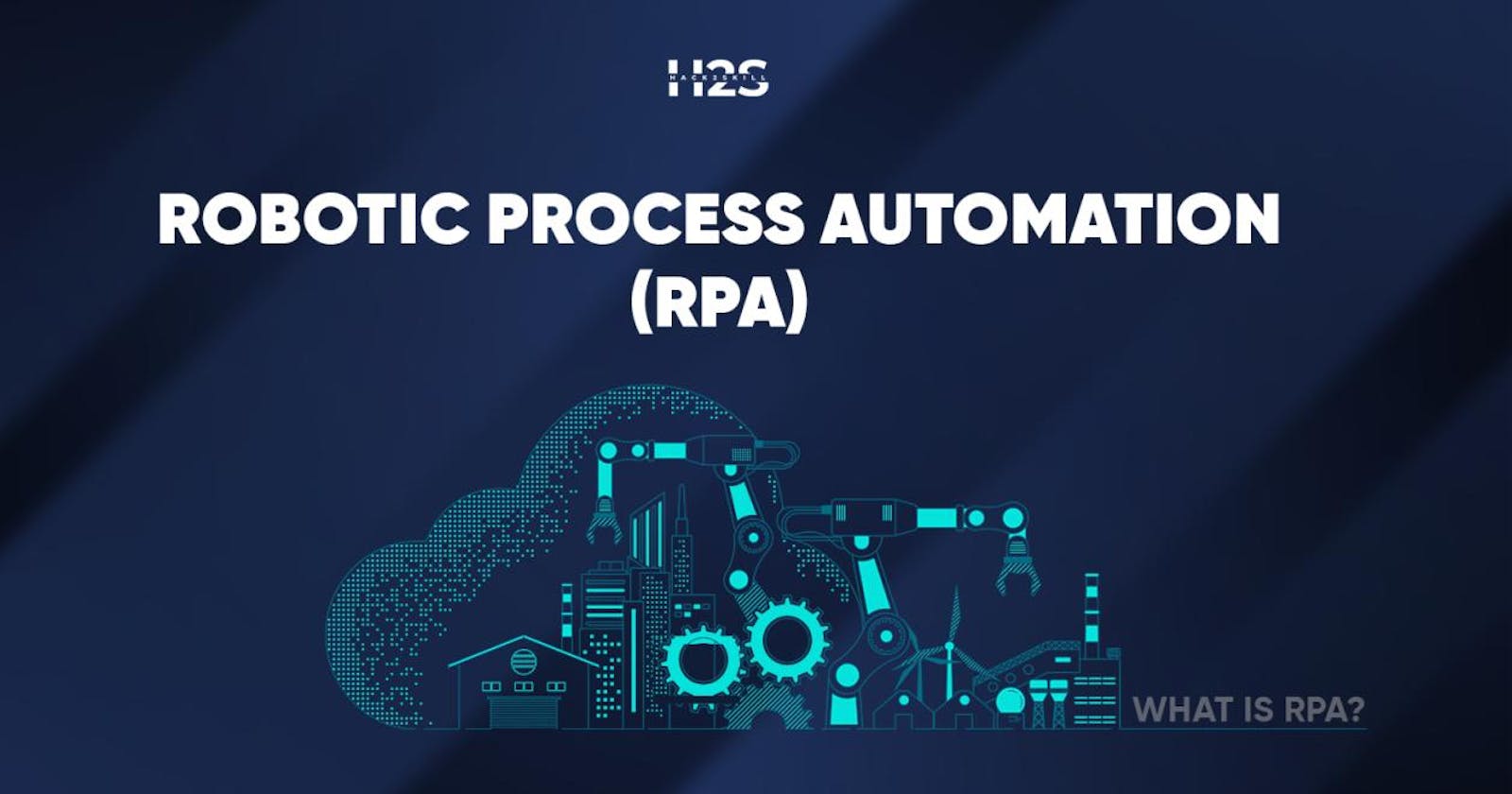There are many revolutions in technology that turned the world upside down and reduced the need for manpower a thousand times. The invention of the computer and the beginning of the internet era all mark significant events in the history of technology.
But there are certain technologies developed that often do not get their due share of credit or are not well known to Tech muggles, one such Technology is RPA-Robotic Process Automation.
Now, before you create an Idea of RPA in your mind imagining sets of gigantic robots working in coordination, let’s set first things first, contrary to its name, there aren’t any Robots involved in the Robotic Process of Automation. Rather it is a software bot, not a physical or manual process.
Let's learn everything in detail below!
INTRODUCTION
RPA stands for "Robotic Process Automation".
To state, the “Robot” in RPA stands for software robots running on a physical or virtue machine, and to answer why the software bots are named so, let’s make it simple. The purpose of RPA is to automate mundane and repetitive tasks and take a load off the shoulders of humans.
To put it in layman's language, RPA will do tasks for you that do not require any special human intervention and are simply time-taking, ceaseless tasks. It can be as simple as automating the process of copy-pasting a code or shifting the bulk of files from one folder to another or even filtering a data set.
To a reader, the process may sound very simple and not of prime importance, but in the real world, RPA has been a great relief to people all across the globe, not only in the tech sector but also in the non-tech sector. Since its inception, RPA has increased work efficiency, saved resources, reduced the chances of human error, and saved a significant amount of time.
It is no doubt that RPA is spreading like wildfire, but the question that arises is why is there a sudden increase in the demand for it?
Apart from its most common advantage i.e reducing the time and saving human bandwidth there are certain exclusive features of RPA that justify its extensive and rampant use in almost every sector. Some of the key reasons for the rapid growth of RPA are mentioned below-
It has effectively taken care of no value-adding jobs such as Data Entry, Data copying, saving almost all domains of business a lot of money and resources.
RPA has been openly and widely accepted by employees of the majority of Businesses in a view that it has created a freeway for them to focus on high-value tasks and contribute to the success of their company.
Affordability and easy availability of RPA software bots have been a very important factors for its growth in the past few years.
Considering the above-mentioned factors, one might quickly come to the conclusion that RPA is highly useful and will keep on thriving in the coming near future, and in no sense, it is right to not think this way.
Technology has us all wrapped around its finger and RPA is one such technology predominantly in the software industry. The future of RPA on a closer or farther look seems absolutely the same. The technology, no doubt will continue to flourish in the future, some of the expected prospects for RPA are listed down below, read on!
According to Mckinsey’s research, “Knowledge in work automation could have an economic impact of 5-7$ trillion by the year 2025.
RPA is expected to impact more than 230 million knowledge workers which constitute 9% of the global workforce.
According to Forrester, the RPA market will reach $2.9B by 2022.
Doesn’t all this sound promising as an aspiring technoid? But there is a twist, though the majority of people working with RPA feel that it is a disruption in the field of tech, there are many who think that such a revolution in the business world had, and would continue to sack the jobs of millions of people, especially those working at a lower level.
While this can’t be totally denied that due to the increasing use of RPA, certain no value-adding jobs have been eaten up in the past few years, as per analysis on a larger level, it is very much clear that though RPA can be used for taking some work off the shoulders of humans, it can’t 100% replace the manual mechanisms of working.
On the contrary, as the RPA sector booms, the demand for RPA developers is increasing at a rapid pace, which means more high-paying jobs are being generated by the growth of this sector.
This said one might curiously think about the possible career opportunities in the field of RPA. Some of the in-demand job profiles in the domain of RPA right now and for the near future are listed down below-
RPA Developer
RPA Engineer
RPA Technical Lead
RPA Solutions Senior Developer
RPA Consultant
RPA Administrator
RPA Business Analyst
RPA Data Analyst
RPA Project Manager
RPA Process Architect
RPA Tester
RPA Support
Aren’t these a bunch of interesting job profiles?
We are sure that after reading this piece of information you will want to deep dive into the technology of RPA. Curious to learn more about RPA, but confused about where to begin? Hack2skill has got you covered!
In a quest to upskill the technical youth of India, Hack2skill and Uipath are collaborating to conduct a Robotic Process Automation Developer Camp- RPADC, A Bootcamp and Diploma, focusing on providing students with hands-on training to get started with RPA and free access to RPA Starter Diploma by UiPath.
The Bootcamps will be conducted by highly talented and experienced industry experts on RPA and students will also be rewarded with UiPath and Hack2Skill goodies and participation certificates after successful completion of the Diploma.
Registrations are open now - hack2skill.com/rpa-developer-camp

